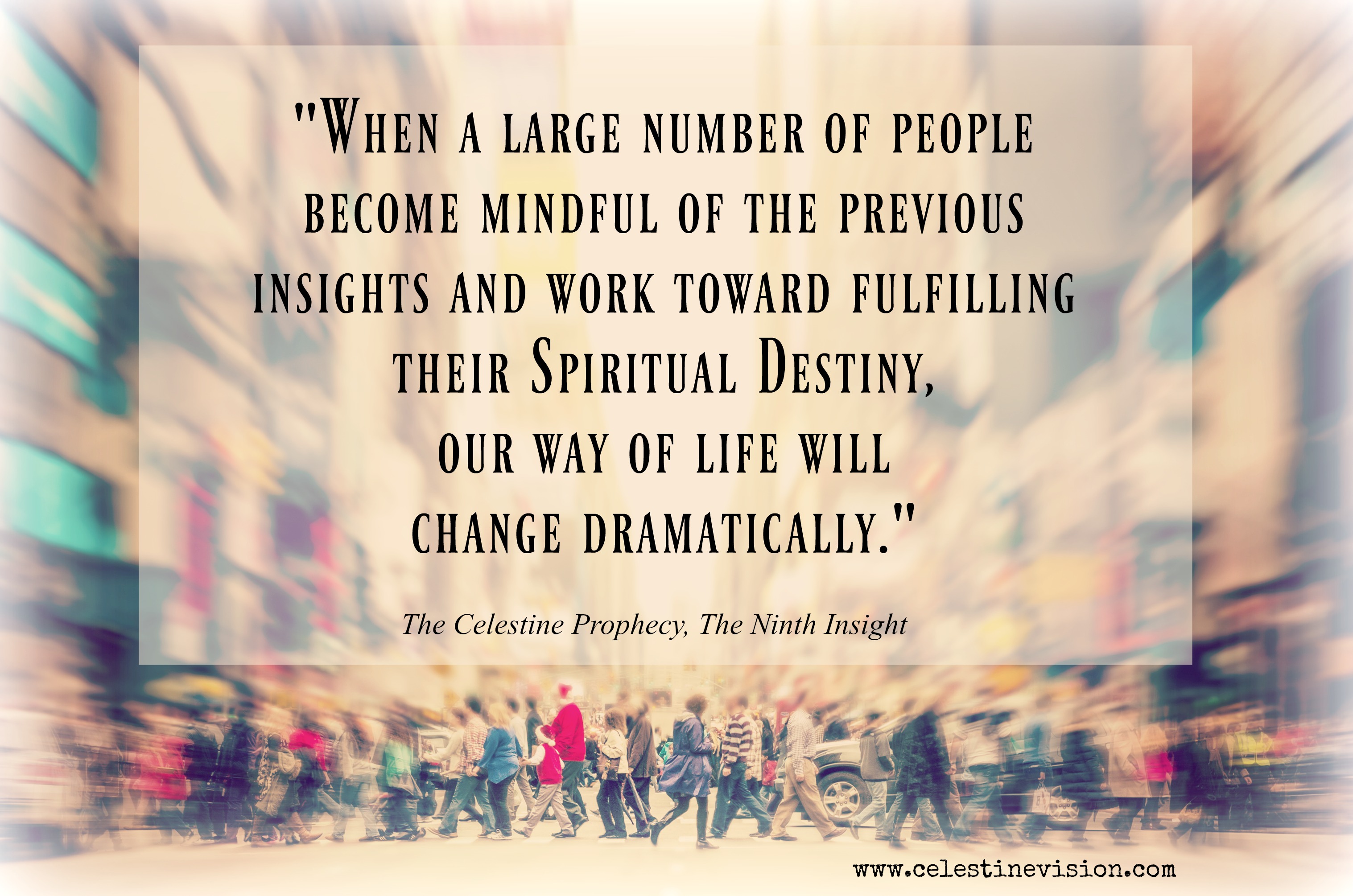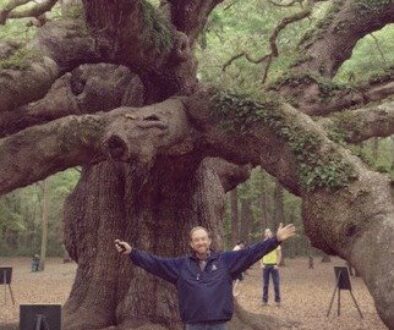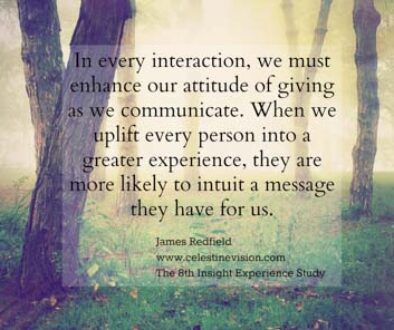The Celestine Prophecy: Sixth Insight Experience Study
 The Sixth Insight Experience Study
The Sixth Insight Experience Study
In The Celestine Prophecy, the Sixth Insight is called, “Clearing the Past.” It allows us to grasp hold of the Fifth Insight, “The Message of the Mystics” by letting go of our preoccupation of the Fourth Insight, “The Struggle for Power.” The energy revealed in the Third Insight, “A Matter of Energy” is opened to us completely as we let go of gaining security from our power struggles and control. And instead, we acquire this energy from our God Connection.
The Sixth Insight teaches us that we most identify with our control drama style when we lose our Connection and are under extreme stress. It is at these times that our unconscious mechanical behaviors surface. We can choose to either ignore and repress our method of gaining security, or focus on and overcome it. Once we have become aware of this behavior, we can stabilize our Connection and remain in regular contact with the true source of all energy. It is then that we can discover our life’s work or mission and start making our meaningful contribution to the world.
Before we can connect with the energy on a continuing basis, there is one large hurdle we must pass. The Sixth Insight deals with this issue.
We must stand up to our particular way of controlling others. Remember, the Fourth Insight reveals that humans have always felt short of energy and have sought to control each other to acquire the energy that flows between people. The Fifth then shows us that an alternative source exists, but we can not stay connected with this source until we become completely aware of the particular method that we, as individuals, use in our controlling, and stop doing it—because whenever we fall back into this habit, we get disconnected from the source.
Changing How We Gain Energy
Changing our habits does not come easy because it has been largely unconscious behavior. The key to bringing yourself fully into consciousness is to recognize how, in the early years of life, we all felt stressed and insecure in the world, and we grew disconnected from our Higher Energy source. As children, we discovered that we could get attention and would people move our way by acquiring a certain personality style of control. This replaced the Divine security and “energy” we so desperately need here on Earth. This style is something we repeat over and over again and usually serves to bring us and the people around us pain because we are stealing the energy we need. I call this our unconscious “control drama type” and each type also reveals how we human’s view the world around us.
I call it a “drama” because it is one familiar scene, like a scene in a movie, for which we write the script as children. Then we repeat this scene over and over in our daily lives without being fully aware of it. All we know is that the same kind of event occurs to us repeatedly. The problem is when we are repeating one scene over and over, the other scenes of our real life movie, the high adventure marked by coincidences, can not emerge.
The first step in the process of getting clear, for each of us, is to bring our particular control drama into full consciousness. Nothing can proceed until we really look at ourselves and discover what we are doing to manipulate for energy and to defend against pain.
Each of us must go back into our past, back into our early family life, and see how these habits developed. By recognizing the nature of how we control, we come closer to keeping these habits in our consciousness. Now, we can check ourselves, in the moment, and change how we gain our energy.
The Types of Control Dramas
Everyone manipulates for energy either aggressively, directly forcing people to pay attention to them, or passively, playing on people’s sympathy or curiosity to gain attention.
For instance, The Sixth Insight calls the intimidator drama, the most aggressive kind of drama for energy. You experience someone threatening you, either verbally or physically. You are then forced, out of fear of something bad happening to you, to pay attention to them and thus, give them energy. The person confronting with you is pulling you into the most aggressive kind of drama for energy.
On the other hand, you may have the experience of someone telling you about bad things that are happening to them. The confrontation could be about their health or a relationship, and they want you to change your behavior to support them or be more sympathetic, sometimes even implying perhaps that you are responsible. Other times they may tell you that if you refuse to do what they need, these awful things will continue or get worse. This person is seeking to control at the most passive level, which is what the Manuscript calls a poor me control drama.
Anyone’s drama can be observed according to where it falls on this measure from aggressive to passive. If a person is subtle in their aggression, finding fault and slowly undermining your world in order to get your energy, then this person would be an interrogator. Less passive than the interrogator would be your aloofness drama. (Trying to lure you into connection by acting distant and unreadable. They want you to connect with them, but they only partially connect themselves, while withholding information.) So the order of dramas, from aggressive to passive, goes this way: intimidator, interrogator, aloof, and poor me.
Remember, there is a tendency to see these dramas in others but to think that we are free from such devices. Each of us must transcend this illusion before we can go on. Almost all of us tend to be stuck, at least some of the time, in a drama and we have to step back and look at ourselves long enough to discover what it is.




